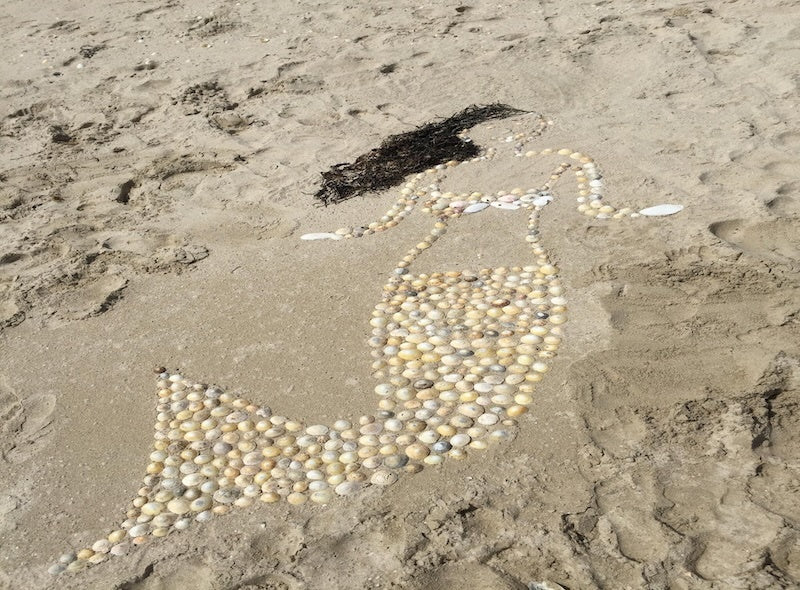
Crisis Tool-Kit Using DBT Skills
By Michelle Lunger
During times of crisis, it can be hard to know what to do in order to feel better in the moment. This can lead to feelings of hopelessness, frustration,and feeling like giving up. For me, something that has helped me during tough times, when I feel like I’m losing control of my life, is learning coping skills, practicing them ahead of time, and coping ahead of time. This helps me become prepared for when I am in crisis so I have tools readily available for me to use and remember. Although oftentimes you can’t erase the suffering, you have control in making it at least 1% better. It may not seem like enough, but learning how to self-regulate is important so you can get to a place where you can make decisions on what to do next. Below are some of the Dialectical Behavioral Therapy (DBT) skills I’ve learned through therapy that have been proven to reduce suffering and ultimately build a life worth living.
To learn more about DBT check out our two blog posts explaining what it is and more about my experience!
https://greybandit.com/blogs/ride-the-wave/dialectical-behavior-therapy-dbt-part-1
https://greybandit.com/blogs/ride-the-wave/dialectical-behavior-therapy-dbt-part-2
TIPP
This is usually my “first line of defense” when I am in crisis. TIPP helps my nervous system to regulate before taking next steps. I usually try to pick the one that is most accessible in the moment, but if you can do them all it can serve as a great distraction while simultaneously self-regulating.
-
Temperature Change:
Hold your breath under ice cold water or in the shower with cold water to activate your nervous system to regulate. This triggers your “mammalian dive reflex” which can help remind your body that you are safe. If you don’t have access to ice water or a shower, holding ice cubes can help, standing in front of a fan, or even sitting in your car with the AC blasting. While these may not activate the dive reflex, they can still be helpful in distracting and grounding yourself from whatever is distressing in the moment.
-
Intense Exercise:
This may not always be accessible in the moment you’re in crisis, but it is still effective whenever you have the space to do so. Although exercising can have numerous benefits regarding mental health, the point of this skill isn’t to “full on” exercise. The point of this is to help you move through distress and expend some of your pent up energy. Some things you can do for this are running in place or short sprints, jumping jacks, squats, etc.
-
Paced Breathing:
There are so many breathing exercises that can help calm and regulate your nervous system. A few breathing exercises that have helped me include 4-7-8 breathing (breathe in for 4, hold for 7, and breathe out for 8). Some may find this technique to be long especially if you aren’t used to breathing like this, but just know that you can hold it or breathe out for however long feels good to you! I like something like this because it creates a set time for me to do this so I’m thinking about that time and my breath which can be a helpful distraction.
Other breathing exercises:
Box breathing- breathe in for 4, hold for 4, and breathe out for 4 and repeat.
Alternate nostril breathing- a technique often done in yoga/ meditation. Just simply noticing your breath. Inhaling a mantra and exhaling something that you are letting go. Example: inhale peace exhale fear (you can say this out loud or in your head).
-
Paired Muscle Relaxation:
This one is the longest but it is still very effective not only for distress but for relaxation before sleep as well. It involves tensing and relaxing each body part while breathing through each part. I like to pair this with paced breathing so I have a set time in my head that I hold and release.
Video: https://www.youtube.com/watch?v=ClqPtWzozXs
Self-soothe using the 5 senses:
I like to do this after I do TIPP because I feel like it is a little easier to self-soothe after I am a bit more regulated and my body knows it is safe.
Ways you can self-soothe:
-
you can name things you see, hear, things you can taste/smell, things you can feel/ touch.
-
You can set a number of the things you can look for using your 5 senses. Example: 5 things you see, 4 things you can hear, 3 things you can feel/touch, 2 things you smell and one thing you can taste.
-
you can build a self-soothing kit that you can bring on the go that includes your 5 senses.
Sight: pictures of you and/ or your loved ones, cute stickers, a picture book, a small notepad to write, draw, or a mini coloring book (sight and touch).
Hear: you can bring headphones or create a soothing playlist
Feel/touch:
you can bring a stress ball, a portable fan, fidget toys, a soothing face mist or mask, a breakable ice pack, etc.
Smell: you can bring your favorite perfume, lotion, essential oils, etc.
Taste: you can bring your favorite candy, snack, gum, mints, etc.
We hope these skills are helpful in reducing distress. Remember, the more you practice these skills, the more easily accessible they become. Try to be gentle and compassionate while you are learning these skills. It may take a few tries but they are definitely worth knowing and adding to your distress tool-kit. Let us know if you have tried any of these skills, have found them helpful, or are thinking about trying them out! If you have any other coping skills you use let us know. Also if you have trouble with these skills or have more questions we can send you more information, videos, and resources!











